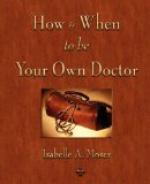By the time I finished nursing school, it was clear that the hospital was not for me. I especially didn’t like its rigid hierarchical system, where all bowed down to the doctors. The very first week in school we were taught that when entering a elevator, make sure that the doctor entered first, then the intern, then the charge nurse. Followed by, in declining order of status: graduate nurses, third year nurses, second year nurses, first year nurses, then nursing aids, then orderlies, then ward clerks, and only then, the cleaning staff. No matter what the doctor said, the nurse was supposed to do it immediately without question—a very military sort of organization.
Nursing school wasn’t all bad. I learned how to take care of all kinds of people with every variety of illness. I demonstrated for myself that simple nursing care could support a struggling body through its natural healing process. But the doctor-gods tended to belittle and denigrate nurses. No wonder—so much of nursing care consists of unpleasant chores like bed baths, giving enemas and dealing with other bodily functions.
I also studied the state-of-the-art science concerning every conceivable medical condition, its symptoms, and treatment. At the university hospital nurses were required to take the same pre-med courses as the doctors—including anatomy, physiology, biochemistry, and pharmacology. Consequently, I think it is essential for holistic healers to first ground themselves in the basic sciences of the body’s physiological systems. There is also much valuable data in standard medical texts about the digestion, assimilation, and elimination. To really understand illness, the alternative practitioner must be fully aware of the proper functioning of the cardiovascular/pulmonary system, the autonomic and voluntary nervous system, the endocrine system, plus the mechanics and detailed nomenclature of the skeleton, muscles, tendons and ligaments. Also it is helpful to know the conventional medical models for treating various disorders, because they do appear to work well for some people, and should not be totally invalidated simply on the basis of one’s philosophical or religious viewpoints.
Many otherwise well-meaning holistic practitioners, lacking an honest grounding in science, sometimes express their understanding of the human body in non-scientific, metaphysical terms that can seem absurd to the well-instructed. I am not denying here that there is a spiritual aspect to health and illness; I believe there are energy flows in and around the body that can effect physiological functioning. I am only suggesting that to discuss illness without hard science is like calling oneself a abstract artist because the painter has no ability to even do a simple, accurate representational drawing of a human figure.
Though hospital life had already become distasteful to me I was young and poor when I graduated. So after nursing school I buckled down and worked just long enough to save enough money to obtain a masters degree in Clinical Psychology from the University of British Columbia. Then I started working at Riverview Hospital in Vancouver, B.C., doing diagnostic testing, and group therapy, mostly with psychotic people. At Riverview I had a three-year-long opportunity to observe the results of conventional psychiatric treatment.




